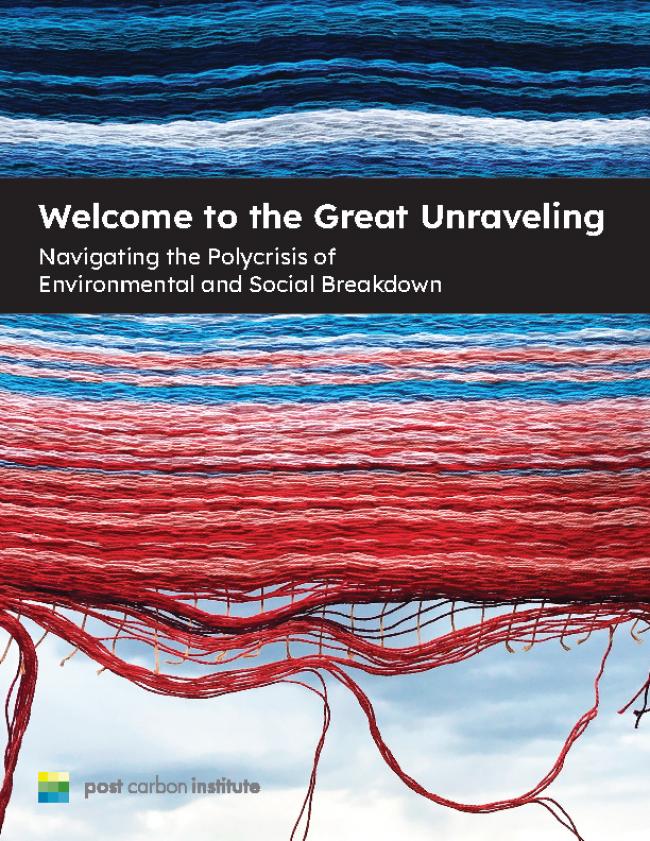Articles Menu

June 15, 2023
June 15, 2023
In recent years, policy think tanks have increasingly adopted the term polycrisis to signify humanity’s destabilized status quo.
Welcome to the Great Unraveling: Navigating the Polycrisis of Environmental and Social Breakdown seeks to build a coherent narrative about the roots of the polycrisis, the signs of its arrival and evolution, and why we should be thinking differently about the future.
Small file size (4MB) for screen viewing:
Large file size (42MB) for printing:
See also: Co-author Richard Heinberg’s article about the report, Polycrisis, Unraveling, Simplification, or Collapse: Coming Soon to a Planet Near You? (June 15, 2023) on resilience.org
During the 20th century, and especially the latter half of the century, humanity’s increasing adoption of fossil fuels as sources of cheap and abundant energy enabled rapid industrialization. The result was a massive increase in nearly all human activities and their ecological and social impacts, a process that has been called the Great Acceleration. The first two decades of 21st century saw a new phase of the Great Acceleration, with wars fought over the last sources of cheap oil, expensive and destructive exploitation of remaining natural resources, the massive use of debt and speculation to expand energy production and maintain economic growth, and the arrival of environmental and social impacts too overwhelming for even the world’s wealthiest and most powerful people and nations to ignore.
Now, in the 2020s, the Great Acceleration is losing steam and shows signs of reversing direction. Thought leaders and policy think tanks have invented a new word—polycrisis—to refer to the tangles of global environmental and social dilemmas that are accumulating, mutually interacting, and worsening. The central claim of this report is that the polycrisis is evidence that humanity is entering what some have called the Great Unraveling—a time of consequences in which individual impacts are compounding to threaten the very environmental and social systems that support modern human civilization. The Great Unraveling challenges us to grapple with the prospect of a far more difficult future, one of mutually exacerbating crises—some acute, others chronic—interacting across environmental and social systems in complex ways, at different rates, in many places, and with different results.
Welcome to the Great Unraveling is intended to help the general public—but particularly academics and researchers, environmental and social justice nongovernmental organizations and their funders, and the media—recognize what the Great Unraveling is, what it means for both human civilization and the global ecosystem, and what we can do in response. The paper calls attention to four main things: